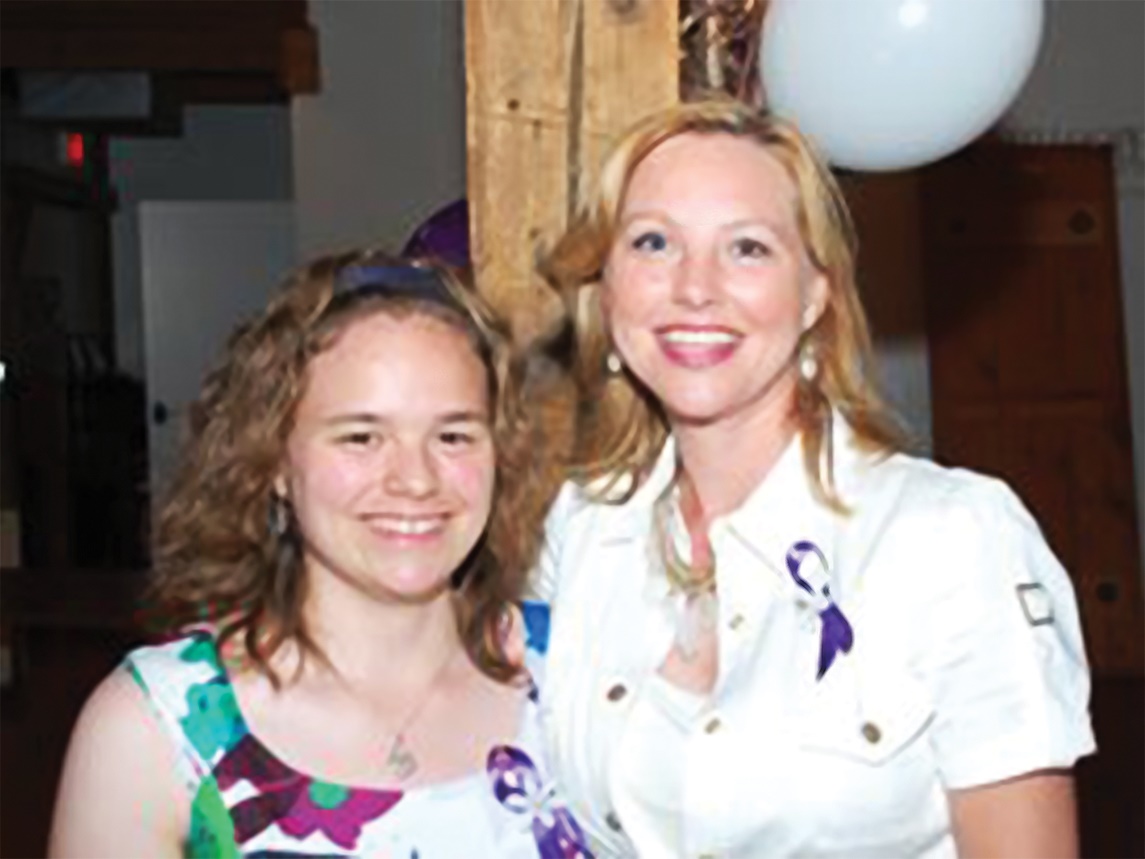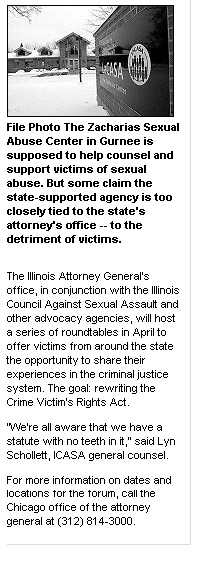
Are victim advocates too cozy with the 'system'? 'A fine balance'
February 15, 2008
By Judy Masterson
Denise Rotheimer wanted to help survivors of sexual assault. Her child was raped in 2001, and both mother and daughter found strength and support at LaCASA, now the Zacharias Sexual Abuse Center in Gurnee.
The busy working mom volunteered as a rape crisis counselor through the agency for two years, eventually making the commitment to become a court advocate, offering information and support to victims navigating a complex legal system. But after completing one day of training, Rotheimer was suddenly disinvited from that mission, she believes, because of her vocal opposition to minimal sentences for convicted sex offenders.

Rotheimer argues that advocacy groups have become too cozy with state's attorneys.
Zacharias Center and its umbrella, Illinois Council Against Sexual Assault, agree that plea agreements give rapists and pedophiles a break. But they prefer to work cooperatively with state's attorneys than attempt to dictate policy change, according to Torrie Flink, Zacharias Center executive director.
"It's very important for us to maintain a relationship with anybody and everybody that works with sexually violated individuals," Flink said. "It's very important that we create a working system. That's our job. We work hard to ensure our relationships with the community are positive and good and that we're all on the same business, moving in the same direction to assist the healing of incest and abuse victims."
Flink acknowledged that perpetrators "are allowed to plea-bargain for sentences that we don't feel equate to the proportion of their crime." She also admitted the Zacharias Center "utilizes" the expertise of the state's attorney's office.
But she denied that the relationship compromises its ability to advocate for victims.
"I ache for the cases that fall short of where they need to be and for those that never come forward," Flink said. "We have come a long way in the criminal justice system, and not nearly as far as we would like to be. But these things don't happen overnight."
Lyn Schollett, ICASA general counsel, said that while the agency occasionally hears that sentences are too short, the biggest complaint is that cases are not charged in the first place.
"We're working in Cook County to get a handle on the enormous drop-off from victim reports to convictions," she said. "Three in 10 victims report, and the conviction rate is maybe 30 percent."
Well under 5 percent of rapists actually pay for their crime, said Schollett, who is working to help implement a system tracking all police reports for rape through arrests, charges and prosecutorial outcomes.
"State's attorney's offices are not required to publish anything," Schollett said. "Publication could create the biggest change in how prosecutors treat rape cases."
ICASA also recognizes what amounts to time-outs given some sex criminals.
"Sentences are a fine balance because on one hand, the offender should be held accountable for this heinous conduct," Schollett said.
"On the flip side, there is a reluctance by juries to convict when the sentence is especially long. There's a reluctance by them to believe victims and to treat sex crimes seriously. It's been an uphill battle. When offense levels are raised or sentences are lengthened, we have seen a backlash."
--- source : www.suburbanchicagonews.com
Denise Rotheimer
Ingleside
Founder, Mothers On a Mission to Stop Violence
